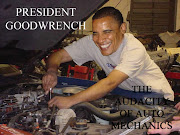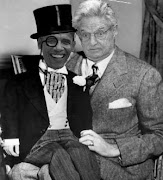
Let's say you have a car. All in all, the thing runs fine and gets you where you need to go. However, the brakes are starting to squeal, the battery won't hold a charge, the rear passenger window won't roll down, and the radio isn't working.
Do you take your car to a mechanic and have the entire thing rebuilt because of the few broken parts? No, you fix the broken parts, leave the working parts alone, and start driving the car again.
Why, then, do so many people think it's okay for our government to rebuild the entire health care system when many parts of it are working just fine?
Our Congress is approaching this problem from the wrong perspective. They need to use a medical diagnosis approach as their guide to fixing the health care problem:
TRIAGE

1. Identify and treat the most dire problem first, just as in an ER they take care of the most serious problem first. Those who are bleeding out take precedence over those who have a sore throat.
- Right now, Medicare and Medicaid are failing. They are bankrupting our nation as they are bankrupting themselves. Before adding more tax/spend burden on an already vulnerable situation, fix the programs that are not working FIRST.
2. Identify and treat the people who are uninsured because they can't afford private insurance and are not qualified for public aid.
- Those who can afford their own private insurance, but chose not to, should not be required by law to participate in the public option. Conversely, they should not be mandated by law to purchase their own private insurance. The government has no business dictating what Americans may or may not choose to do with their health. To interfere in this way is unconstitutional.

3. Identify and deport illegals who have been accessing health care at others expense. They are draining an already weak patient. It must stop.
4. Do not offer the public option to anyone who is currently insured through their employer. They should be excluded from the public option as long as they are working; however, in the event that they lose their job, they should then be eligible for the public option until another job with health coverage benefits is secured, or another job with wages high enough to purchase their own insurance is secured (in the event that the employer is unable to contribute to a health insurance plan).
5. Allow small businesses to participate in the plan, offering their employees the option of the public plan, with each party contributing a nominal fee in order to offset costs. However, it should be an option for the small business to participate - not a mandatory law. Just as auto insurance works, those fees are collected and invested, and a pool of funding is created.
6. The law should be written so as to offer a smorgasbord of benefits for the participant, rather than a "one size fits all" type of plan. Those people who are healthy have different medical needs than those who suffer from chronic ailments, such as diabetes, asthma, or high blood pressure.
7. The public option should be designed as a safety net - not as a government health insurance single payer system. People would be much more willing to invest their tax dollars in a system that doesn't create dependency on the government, but that helps those in need during exceptional times of financial distress.
8. Most importantly, none of these steps should be rushed. They need to be carefully examined (just like a patient), ruling out all other options (just as diagnosis are ruled out in order to reach the correct diagnosis), and a prescribed treatment that is efficient and effective should be applied.

There is no reason to throw out the good parts of American health care with the bad. Leave the good parts in place - and leave them alone so they can continue to function and expand with innovation and technology.
Just as Clouseau said while resuscitating Chief Inspector Dreyfus: "Out with the bad! In with the good!"






Great analogy Ms. Smarty. Would be nice to get it into the right hands so that it could do some good before it is too late.
ReplyDeleteThanks for the read and comment Toni. I hope it isn't too late! Maybe our "respresentatives" will actually listen to what their constiuents have to say during the August break.
ReplyDelete